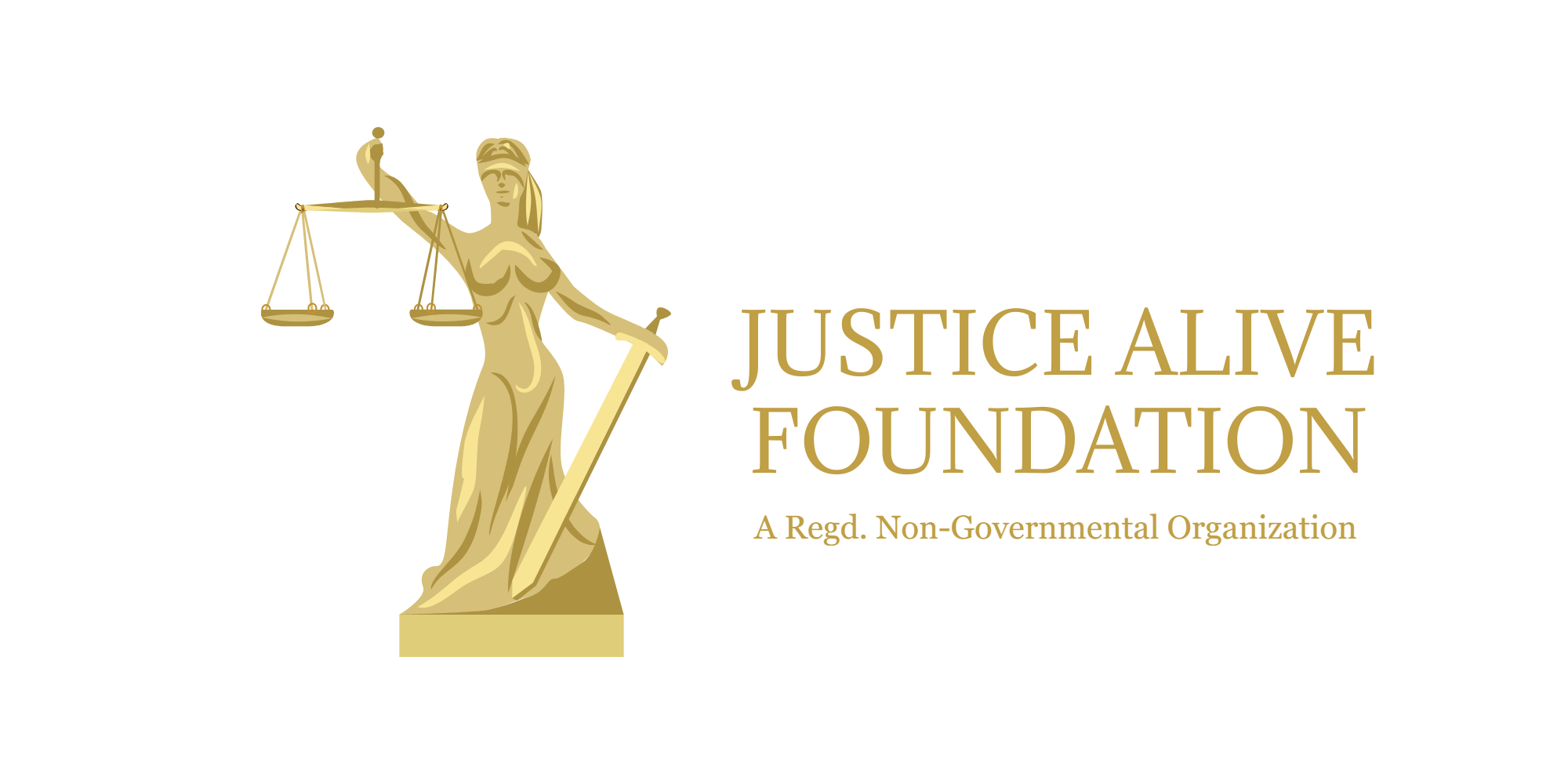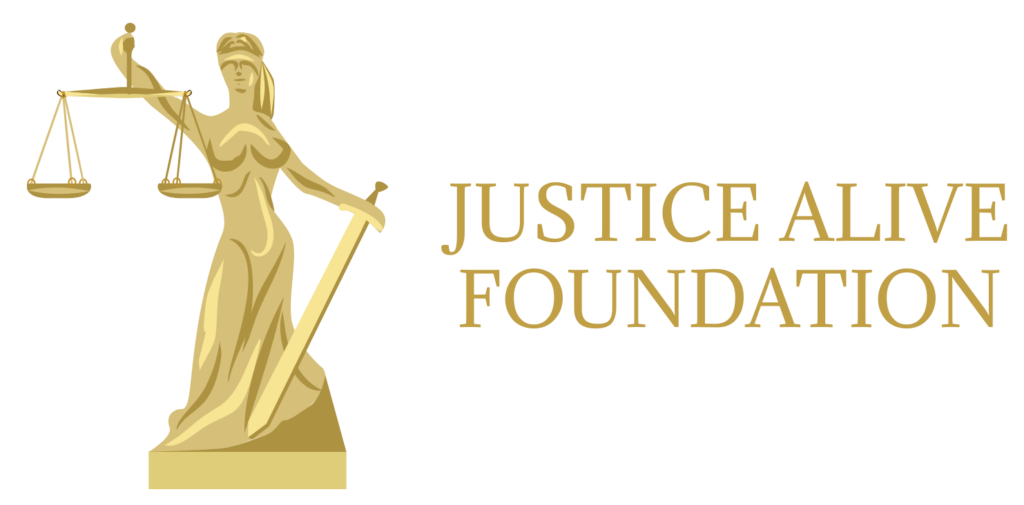
Efficacy of Legal Aid Clinics in Law Schools
This article has been written by Ms. Abhiruchi Kumari.
INTRODUCTION
Every person must have an equal opportunity to seek and receive legal redress, which is an essential component of any democracy. Giving everyone access to cheap legal services, meanwhile, remains a tremendous problem in a nation as large and diverse as India, with a population of over 1.3 billion. Legal aid clinics have become a cutting-edge response to this demand, especially within the context of law schools. By offering unpaid legal aid and support to disadvantaged and marginalized groups in society, these clinics seek to close the justice gap. This study aims to evaluate and assess the effectiveness of legal aid clinics at Indian law schools by looking at how well they promote access to justice and meet the socio-legal requirements of the local population.
Law schools’ legal aid clinics serve two purposes. On the one hand, they offer law students a realistic setting in which to apply their theoretical knowledge. Under the guidance of seasoned faculty members, these clinics provide a hands-on learning environment where students can do legal research, provide client counseling, draught legal documents, and even represent clients in court. Students develop useful skills, professional ethics, and a deeper comprehension of the difficulties experienced by vulnerable people in obtaining justice through these practical experiences.
Legal aid clinics, on the other hand, are crucial in helping law schools and lawyers achieve their social commitments to the needy. A sizable portion of the population in India struggles with issues including poverty, illiteracy, prejudice, and other obstacles that prevent them from accessing the legal system. Legal aid clinics provide free legal assistance to those who cannot afford legal representation in an effort to alleviate these systematic disparities. These clinics provide persons with legal information, direct them through the legal system, and fight for their rights by reaching out to marginalized areas. By doing this, they support the advancement of a judicial system that is more inclusive and equal.
A thorough analysis of the effects of legal aid clinics on diverse stakeholders is necessary to determine their effectiveness. Prior to anything else, it’s crucial to assess how well these clinics have done at giving their patients access to the legal system. This evaluation involves looking at the volume of cases handled, the kind of legal issues handled, and the results obtained.
As a result, legal aid clinics in law schools in India have shown to be a successful method for advancing access to justice and meeting the socio-legal requirements of disadvantaged groups. These clinics foster a symbiotic relationship that is advantageous to both law students and the larger community by combining practical legal education with the offering of free legal services. The effectiveness of these clinics will be scrutinized thoroughly as part of this study, highlighting their advantages, disadvantages, and room for growth. This paper seeks to add to the existing conversation about legal aid clinics in India and access to justice through a thorough analysis.
LEGAL PROVISION AND NEED FOR LEGAL AID CLINICS
Legal Aid Clinics are essential in ensuring that disadvantaged and marginalized groups in society have access to justice. The creation of legal aid clinics in India, where a sizeable section of the population has socioeconomic difficulties, is not only morally necessary but also required by law.
“Article 39A of the Indian Constitution requires the state to offer free legal assistance to the underprivileged and disadvantaged members of society. The Legal Services Authorities Act, 1987, which seeks to secure justice for all by promoting and offering free legal services, strengthens this provision. Legal assistance clinics can be formed in law schools and other educational institutions, according to Section 12 of the Act. These rules acknowledge the necessity for legal aid clinics as a way to close the gap between the legal system and the disadvantaged groups.” – A Brief History of Legal Aid. (n.d.)
Legal aid clinics must be established in law schools for a number of reasons. They first give law students training in practice and exposure to actual legal challenges. Students acquire invaluable practical experience that improves their comprehension of the law and how it is applied by taking part in tasks including legal counseling, preparing legal documents, and client representation.
Secondly, legal aid clinics encourage disadvantaged and marginalized people to have access to justice. Legal services are easily accessible to those who cannot afford conventional legal representation because these clinics are frequently situated in regions with a high population of vulnerable communities. People who would otherwise be unable to afford legal representation or help can do so through legal aid clinics.
Legal aid clinics also act as hubs for education and outreach to the local population. They hold seminars, workshops, and programs on legal literacy to inform the public about their rights and equip them with legal knowledge. This contributes to the development of a society that is capable of actively engaging in the judicial system and is aware of its legal rights.
The effectiveness of legal assistance clinics in Indian law schools needs to be regularly evaluated and studied, nevertheless. It is crucial to make sure that these clinics have the resources they require, are staffed by qualified individuals, and are sufficiently supported. Regular evaluation of their effectiveness, outreach, and impact can assist pinpoint problem areas and enhance operations.
In conclusion, legal aid clinics are not only required by law but also a way to promote inclusivity and fairness in society. its urgent requirement for existence is acknowledged by the legal conditions governing its establishment. Legal aid clinics are essential to bolstering the judicial system and sustaining the equity and justice values entrenched in the Indian Constitution by giving law students practical training, expanding access to justice for marginalized people, and fostering legal awareness.
DATA ANALYSIS OF HISTORICAL PERFORMANCE
Legal aid clinics are essential for ensuring access to justice and raising awareness of the law in India. These clinics, which are frequently organized by law schools, seek to close the justice gap by providing underserved areas with free legal representation. With a focus on their effectiveness at law schools, we shall assess the historical performance of legal aid clinics in India in this analysis.
Establishment and Development: Over the years, legal aid clinics have grown significantly in India, with law schools playing a key role in their development. At Delhi University’s Faculty of Law, the first legal assistance clinic in India opened its doors in 1973. Since then, law schools have progressively increased the number of legal aid clinics, demonstrating their dedication to social justice.
Typical services offered by legal aid clinics in law schools include legal guidance, counseling, litigation support, and community outreach initiatives. They want to help people who can’t afford lawyers and take care of the legal requirements of underprivileged areas.
Access to Justice: Improving access to justice is one of legal aid clinics’ main goals. These clinics give underprivileged people and communities a chance to exercise their rights and get their complaints heard by providing free legal services. They assist in minimizing the disparities in access to justice that exist as a result of financial limitations.
Legal aid clinics offer law students beneficial chances for hands-on learning and interaction with current legal concerns. Student Involvement and Practical Learning. Students have practical experience in legal research, drafting, and advocacy through internships and voluntary work. Future attorneys are made more aware of the concerns of the impoverished thanks to this involvement, which promotes a sense of social responsibility.
Impact and Outreach: Determining the impact of legal aid clinics can be difficult, but a number of measures can be used to assess their effectiveness. The number of cases handled, the success rates, client satisfaction, and the scope of community outreach programs are a few of these. We can determine how much these clinics have improved the lives of their clients by evaluating these variables.
Limitations: Despite its benefits, legal aid clinics encounter a number of difficulties. Their resources are frequently strained by a lack of infrastructure, a lack of financing, and a severe workload. Furthermore, there is also a problem with poor groups not being aware of the availability and advantages of legal aid clinics. Enhancing the effectiveness of legal aid clinics in India requires addressing these issues.
Collaboration: Legal aid clinics frequently engage with NGOs, governmental organizations, and local communities to increase their efficacy. Such collaborations expand the reach and influence of these clinics and provide a comprehensive strategy for addressing the legal problems that marginalized groups face.
Legal aid clinics in law schools in India have been essential in expanding access to justice and assisting underserved people, according to an analysis of past performance. These clinics aid in the development of a legal profession that is socially conscious by involving law students and encouraging practical learning. Despite obstacles, their continuing development, cooperation, and impact assessment will be crucial for assuring their effectiveness and extending their reach in the future.
IMPACT ON LAW STUDENTS
The legal education and professional growth of law students in India have been significantly influenced by legal aid clinics. These clinics, which are frequently formed within law schools, give students the chance to put their theoretical knowledge into practice in real-world settings while helping disadvantaged people and marginalized communities. The advantages for law students of this practical experience are considerable.
Firstly, legal aid clinics give law students a hands-on look at how the law is used in real-world situations. Students learn a great deal about the difficulties of the legal system by working on real cases and assisting clients with legal matters. In order to effectively fight for the rights of their clients, they study legal analysis, research, and strategy. This hands-on training sharpens their analytical and problem-solving abilities and gets them ready for the obstacles they might encounter in the legal field in the future.
Second, legal assistance clinics encourage hands-on learning and instill a feeling of civic duty in law students. They make marginalized populations’ social, economic, and cultural realities accessible to students. Students can gain empathy, cultural competency, and a greater understanding of social justice concerns through working with clients from various backgrounds. Students are encouraged by this exposure to apply their legal knowledge to confront social injustices and advance society.
Legal aid clinics also give law students the chance to advance their careers and build a network of professionals. Their encounters with clients, supervising attorneys, and other students help them hone their advocacy, bargaining, and communication skills. They also learn about professional ethics and the value of upholding professionalism and secrecy. Additionally, legal aid clinics frequently cooperate with other organizations and individuals in the legal field, giving students networking opportunities that can help their future employment.
In India, legal aid clinics have a significant positive influence on the legal education and professional development of law students. These clinics help students develop practical skills, cultivate a sense of social responsibility, and help build a professional network by bridging the gap between theory and practice. Legal aid clinics provide students with essential experiences that not only help them become qualified lawyers but also instill in them a sense of responsibility for social justice and public duty.
LEGAL AID AS AN ESSENTIAL PART OF LEGAL EDUCATION
Legal aid clinics are essential to legal education, especially in promoting civic engagement and useful legal knowledge. The effectiveness of legal aid clinics in law schools is even more crucial in the Indian setting, where marginalized groups still face major access to justice challenges. The promotion of social responsibility and useful legal skills should not, however, be restricted to the classroom; it should go beyond the confines of formal education. In India, legal aid clinics are a crucial part of legal education since they give students the chance to further their understanding of the law while also making a significant contribution to society.
IMPORTANCE OF LEGAL AID CLINICS
Through interactions with actual clients, understanding their issues, and offering legal advice, legal aid clinics give law students practical experience. By bridging the gap between theory and practice, these clinics help students gain valuable skills in client counseling, case analysis, legal research, and drafting. By actively participating in legal aid work, students have a deeper knowledge of the difficulties faced by marginalized populations and the function of the law in advancing social justice.
1. FOSTERING SOCIAL RESPONSIBILITY:
Legal assistance clinics encourage students to feel responsible for the community. Students gain empathy for the marginalized and experience the inequalities that are pervasive in society through direct interaction with those who are less fortunate. In doing so, they develop a dedication to social justice and the empowerment of the oppressed. They also learn how to apply legal ideas to social challenges. Students are forced to challenge current legal systems and fight for required improvements as a result of this practical experience, resulting in constructive social change.
2. PRACTICAL LEGAL SKILLS
Legal aid clinics present a priceless chance for law students to put legal theory into practice. Students gain crucial abilities such as legal research, analysis, and problem-solving through working on actual cases. They get knowledge on how to negotiate intricate legal frameworks, write legal documents, and effectively argue. These transferable talents improve their employability and equip students for the difficulties of the legal profession.
3. COMMUNITY ENGAGEMENT AND ACCESS TO JUSTICE
Legal aid clinics in law schools are essential for improving marginalized groups’ access to justice. Many people who are financially or legally illiterate find it difficult to deal with the legal system. Law students make ensuring that these people have a voice and can defend their rights by offering free legal assistance. Additionally, vulnerable populations are made more aware of the law through legal aid clinics, giving them the skills necessary to comprehend and use the legal system on their own.
4. COLLABORATION AND NETWORKING
Legal aid clinics build networks that may result in lifelong professional relationships by facilitating collaboration between law students, attorneys, and non-profit organizations. Students have the chance to work with seasoned solicitors and gain knowledge from their experience. Through this partnership, they gain a deeper understanding of the legal industry and have access to new job options. Additionally, it enables students to gain critical networking abilities, which are necessary for a successful legal career.
CHALLENGES
Legal aid clinics have several advantages, but they also face some difficulties. Significant obstacles include a lack of infrastructure, a lack of money, and high demand for legal services. Several suggestions might be taken into consideration to improve the effectiveness of legal aid clinics in Indian law schools. Increased funding from public and private sources, partnerships with legal aid organizations, frequent training sessions for professors and students, and the inclusion of legal aid in the curriculum are a few of these.
Lastly, Legal aid clinics are a crucial component of legal education in India, encouraging students to take on social duty and develop practical legal knowledge. These clinics give participants the chance to interact with actual clients, comprehend societal challenges, and use their legal expertise in real-world situations. Students make a positive impact on society and are crucial in ensuring that marginalized populations have access to justice by actively participating in legal aid activities. In order to empower law students and build a more equitable and inclusive society, ongoing support, resources, and collaborations are required to maximize the effectiveness of legal aid clinics.
PROMOTION OF PRO BONO LITIGATION
In order to support pro bono litigation and offer legal aid to underserved populations, legal aid clinics are essential. Legal aid clinics created in law schools have emerged as crucial institutions in bridging this gap in India, where access to justice is a struggle for many. In India, pro bono litigation is essential for guaranteeing marginalized populations equal access to justice. In a developing country with a diversified population, legal aid is essential to resolving the problems encountered by the disadvantaged. The establishment of legal aid clinics within law schools has become an essential method of bridging this gap and allowing law students to actively participate in society while receiving useful practical experience. The effectiveness of legal aid clinics in Indian law schools is evaluated and analyzed in this article, which also emphasizes how important they are for fostering pro bono litigation and offering crucial legal support to underserved groups.
1. ACCESSIBILITY AND OUTREACH
Legal aid clinics give law schools a platform to provide legal aid to people outside of the university. These clinics are positioned in underserved locations such as rural areas, urban slums, and other marginalized communities. Students and instructors in the legal profession interact with those who cannot afford legal counsel through legal assistance clinics. These clinics efficiently detect the legal problems that the marginalized are facing and take action to address them by holding legal awareness programs, counseling sessions, and mobile clinics.
2. SKILL DEVELOPMENT FOR LAW STUDENTS
Law students have a rare opportunity to get practical experience and use their academic knowledge in real-world settings by participating in legal assistance clinics. Students who participate in pro bono litigation gain exposure to a variety of issues and develop their legal research, writing, and advocacy abilities. Students’ sense of social responsibility is fostered by this experiential learning, which makes them more attuned to the concerns of marginalized communities and motivates them to make valuable contributions to society throughout their legal careers.
3. COLLABORATIVE LEARNING
Legal assistance organizations, NGOs, and governmental organizations frequently work together with legal aid clinics in law schools. These collaborations give students the chance to engage with seasoned solicitors and social workers, improving their comprehension of numerous legal and social concerns. The use of a multidisciplinary approach promotes thorough solutions to the issues that marginalized populations face. Such partnerships also improve the relationship between the legal profession and academia, leading to a more integrated approach to social justice.
4. IMPACT ON SOCIETY
Legal aid clinics’ effectiveness is evaluated by how they affect society. Marginalized people can express their rights and look for justice through pro bono legal representation and aid. For many marginalized people and communities, access to basic entitlements like food, shelter, and healthcare has been made possible thanks in large part to legal aid clinics. As a result, by influencing policy and legislative reforms, legal aid clinics not only assist in resolving individual legal issues but also try to bring about systemic change.
Legal aid clinics have made great progress in promoting pro bono litigation and offering legal aid, but they still confront some difficulties. The expansion and longevity of these clinics are frequently hampered by a lack of finance, administrative challenges, and public awareness. Stakeholders need to work together to establish a supportive atmosphere for legal aid clinics to flourish in order to overcome these obstacles.
Lastly, Legal aid clinics in law schools have been critical in encouraging pro bono litigation and giving marginalized groups in India critical legal support. In addition to acting as a link between law students and those who are marginalized, these clinics also spur social change. Legal aid clinics guarantee a better and more inclusive future for India’s legal system by providing students with useful legal skills and encouraging a feeling of social responsibility. However, it is crucial for all parties involved to work together and contribute to the expansion of these crucial institutions in order to increase their effectiveness and ensure that everyone, regardless of socioeconomic level, has access to justice.
CONCLUSION
In conclusion, it has been shown that legal aid clinics in Indian law schools are successful in increasing access to justice and addressing the socio-legal requirements of underprivileged communities. These clinics provide free legal services to underserved populations while giving law students an opportunity for real-world training. Analyzing historical performance reveals that legal aid clinics have grown and progressed gradually in India, with a focus on enhancing impoverished people’s access to justice.
Legal aid clinics have a big impact on law students because they give them practical experience and help them connect theory and practice. Students develop useful skills in client counseling, case presentation, and legal research through working with actual clients. This improves their grasp of the legal system and cultivates a feeling of social responsibility. Student networking possibilities with legal experts and organizations are another benefit of legal aid clinics.
Additionally, legal aid clinics are essential for fostering pro bono litigation and providing legal aid to underprivileged groups. These clinics make guarantee that those who cannot afford legal representation have access to justice by setting up clinics in underserved locations and carrying out outreach programs. They enable people to independently explore the legal system and contribute to legal literacy.
Despite the difficulties faced by legal aid clinics, such as the constrained funding and high demand for services, their continuing growth, partnership with other organizations, and assessment of their efficacy are essential for their survival and expansion. In India, legal aid clinics are an integral component of legal education, cultivating socially conscious solicitors and fostering the values of equality and fairness in society. To maximize the impact of legal aid clinics and guarantee that they can continue to serve the legal needs of marginalized groups, ongoing assistance, resources, and relationships are required.
REFERENCES
- A Brief History of Legal Aid. (n.d.). A Brief History of Legal Aid.
- Bansal, Y. (n.d.). LEGAL AID AND LAW SCHOOLS IN INDIA. (DOC) LEGAL AID AND LAW SCHOOLS IN INDIA | Yashu Bansal – Academia.edu. https://www.academia.edu/8191942/LEGAL_AID_AND_LAW_SCHOOLS_IN_INDIA
- A Study of Law School Based Legal Services Clinics | United Nations Development Programme. (n.d.). UNDP. https://www.undp.org/india/publications/study-law-school-based-legal-services-clinics-0
- Dr Jeet Singh Mann, Final Report of the Research Project Under The University Grants Commission Research Award 2012-14 On Impact Analysis of the Legal Aid Services Provided by the Empaneled Legal Practitioners on the Legal Aid System in City of Delhi, National Law University Delhi, 2017
- Nidhi Sharma, Legal Aid Clinics in India as a part of Law School Curriculum: An Overview, Pramana Research Journal, Volume 8, Issue 8, 2018
- Santhoshraju, Krishna Kishore Padala, Dr. K. Sita Manikyam, Access to Justice through Free Legal Aid: A Critical Analysis, Eur. Chem. Bull. 2023,12(Special issue 3), 3384 – 3397





This Post Has 0 Comments